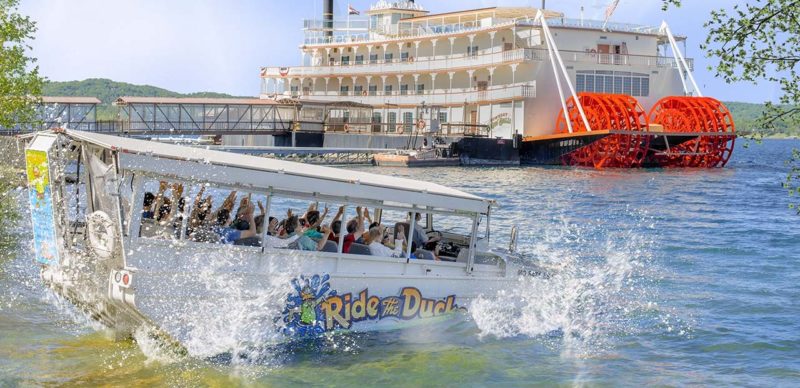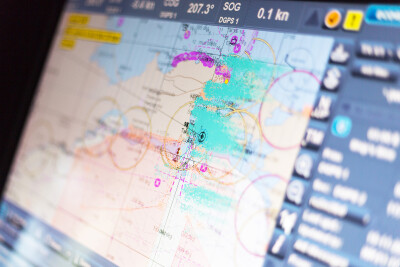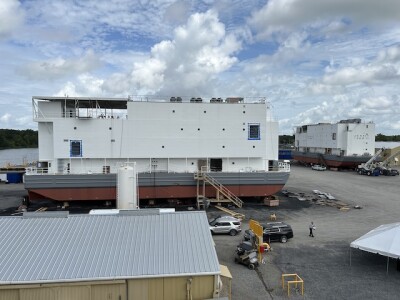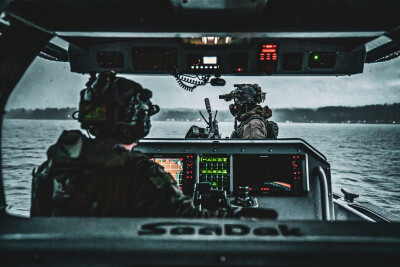An amphibious duck boat carrying 31 people foundered and sank on a lake near Branson, Mo., leaving 17 dead, the deadliest accident ever involving the popular tourist boats.
A storm swept over Table Rock Lake Thursday evening as two of the vessels, operated by Ride the Ducks Branson, were carrying visitors to the popular Midwest tourist destination. Video shot by a passenger on the nearby 278'x78' showboat Branson Belle showed the duck boats struggling through waves and winds that gusted over 60 mph, until one was swamped and capsized.
The National Weather Service issued a severe thunderstorm watch for the area half an hour before the sinking around 7 p.m. Central time. The weather was calm when the 31’x8’ boats departed on their usual 70-minute tours, Jim Pattison Jr., president of Florida-based parent company Ripley Entertainment, told CNN.
“This business has been operating for 47 years and we've never had an incident like this or anything close to it. To the best of our knowledge — and we don't have a lot of information now — but it was a fast-moving storm that came out of basically nowhere is sort of the verbal analysis I've got,” Pattison said Friday morning on the “CBS Good Morning” program.
The passengers ranged in age from toddlers to 70 years old, and a number of the 14 survivors were hospitalized. The dead included nine members of the Coleman family of Indianapolis, and one of the boat's two-man crew, Robert 'Bob' Williams, 73, a retired pastor from Providence, R.I. who had relocated to Branson. Authorities credited an off-duty sheriff’s deputy working security on the Branson Belle with saving passengers.
Divers searching Friday and recovered the bodies of four more passengers.
Marshall Shepherd, director of the atmospheric sciences program at the University of Georgia and a former president of the American Meteorological Society, wrote on Twitter that the danger could have been foreseen:
"This is not 1901. We have satellites, advanced radars, good weather models, all short-term weather information showed that storms approaching well before the boat was on the water...Please act on weather information not hope"

Duck boats are derived from a 2.5-ton amphibious truck developed for the U.S. Army in World War II. The design was named DUKW, an arcane 1940s military acronym based on D indicating the model year, 1942; U referring to its “utility” use, K for its all-wheel drive; and W for having dual rear axles. Soldiers pronounced it “duck,” and postwar surplus vehicles found wide use, including carrying tourists around waterfront destinations. The Branson-based Ride the Ducks licensing organization supplies newer, purpose-built vehicles that have been Coast Guard certified since 1997.
Coast Guard and National Transportation Safety Board investigators were dispatched to Missouri Friday. The Table Rock accident is the latest deadly incident involving duck boats over the last 20 years.
It is the worst since a 1999 sinking at Hot Springs, Ark., that killed 13 passengers. In that case, an original Army DUKW built in 1944, converted to the tour boat Miss Majestic, flooded through a loose rubber boot on a through-hull drive axle, NTSB investigators determined. The sinking was hastened because the old wartime DUKW did not have adequate reserve buoyancy, they reported.
Beside faulting operator maintenance, the NTSB found the Coast Guard did not have uniform standards for evaluating commercial amphibious vehicles, and recommended steps including retrofitting with watertight compartments and removing canopies that could hinder escape in emergencies.
Two Hungarian tourists died in a 2010 collision in the Delaware River in Philadelphia, when a duck boat was struck by a barge tow. On land, the vehicles have been involved in deadly road accidents, including a 2015 Seattle incident when five passengers were killed when a duck collided with a bus.
Ride the Ducks pulled out of Philadelphia abruptly in October 2016, citing a 330% increase in insurance costs after two lawsuits filed by families of pedestrians who had been struck by the vehicles on the streets of Philadelphia’s Old City neighborhoods. In 2015, the San Francisco licensee likewise closed up shop, after demands from city officials that the tours add a narrator in addition to the driver for safety reasons.





